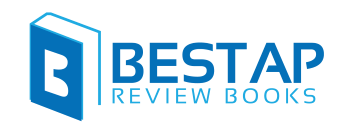You have a vocab test at the end of the week and you need to ace it. We have the study strategies to help you remember the definitions, differentiate them from the rest of the words on the test, and truly learn the words so you can use them in the proper context. If you try our study methods, you’re bound to succeed! Start studying early, and study in small chunks. If you can spend 20 minutes a day, you’ll get closer and closer to a perfect score!
1. Make a Study Tool
Right after you get assigned the vocab list, you need to make a study tool. Your book is not enough. Your study tool should allow you to quiz yourself on the words, making it easy to test your knowledge whenever you have ten minutes to spare. A common study aide is notecards—write the word on one side, the definition on the other. If you don’t have notecards, just take a sheet of lined paper; fold it in half hotdog style; write the words on one side, the definitions on the other. Your study tool needs to let you quiz yourself so you can see the words, without seeing the answer.
2. Write 5 Unique Sentences with the Words
A few nights (hopefully four) before the test, write five unique sentences with each word. This will help you internalize how the word is used in context of other words. Context clues will help you figure out where words belong in a sentence. When you write these sentences, make sure to think of why someone would use the word specifically. If you can’t think of five sentences, look online for help. Using the word is the best way to internalize the word’s meaning. This also engages you using the words in the sentence next to your vocab word to figure out what the word means. Using context clues is the best way to figure out a new word when you encounter one you’re unfamiliar with.
3. Listen to the Pronunciations Online
Knowing how to word is pronounced is going to trigger your auditory sense, allowing you to engage your ears in hearing the word. You can use Wikipedia or Google Translate to pronounce the word for you. Complicated, multi-syllabic words are often hard to pronounce. However, as language is both a written and spoken medium, it’s important to know how to say the word, so you can use it in speech and writing. Plus, the more words you can engage as many senses as possible when learning the words, the better. If you could even figure out a way to engage taste and smell, that would be even better. However, this is tricky. The more ways you can engage your brain, the better you’ll do on this test.
4. Draw Pictures of the Words
You want to make as many neural connections to the words you’re studying as possible. Therefore, you want to try and approach the words from unconventional angles. If you can relate a picture you draw to a word, your brain will trigger that image when you encounter a question about the word on your test. Don’t spend too much time making the picture—the simpler the better. Just make a fast, simple doodle that helps you remember what the words mean. Your task in memorizing words is making a mental map in your brain of all the different words and their associated meaning—a small picture is like a mental shortcut to those meanings.
5. Look Up Origins and Root Words
Understanding the origins of words is going to help you understand why the word came to be used and the context between other words. There’s two ways to do this. First, check out the Oxford English Dictionary online. It will tell you how old the word is, when it started being used, and how it evolved over time. Knowing this information will help you understand why the word is important in the first place. Next, the (most-likely) Latin roots of the words will help you understand the meaning of this word, but other words as well. If you can start relating the roots of one word to another words, it will be easier to puzzle out the definition of new words when you encounter them.
Conclusion
Learning the definitions of words is tricky, but with our tips you’ll task will be much easier. Make a study aide; write sentences with the word; learn the word’s pronunciation; draw a picture of the word; look up its origin and roots. These techniques will help your brain understand the word as more than just a collection of letters—it will make connections to the concrete meaning of the word, so you can immediately recall the definition and ace your test!
